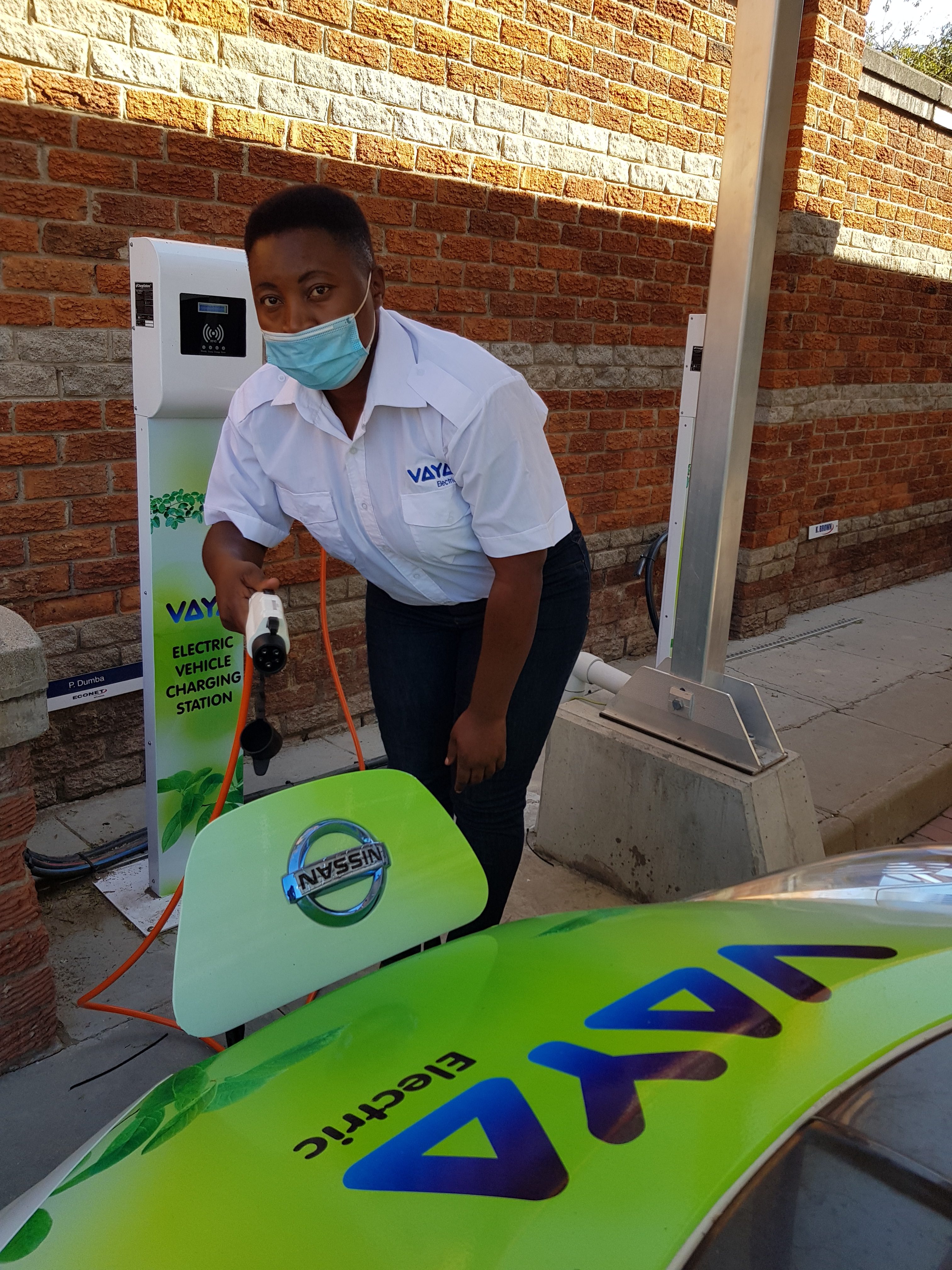As many global vehicle manufacturers shift towards electric vehicles in a bid to curb carbon emissions and save money, VAYA Africa, a ride-hail mobility venture founded by Zimbabwean billionaire Strive Masiyiwa, has launched an electric taxi service and charging network in the Southern African country.
The company has acquired a fleet of Nissan Leaf EVs and developed its own solar-powered charging stations, with plans to expand across Africa, including Kenya, South Africa, Nigeria, and Zambia, reports TechCrunch.
“We are excited to launch the ‘VAYA Electric’ vehicle today as we start our journey of deploying innovative ways of harnessing clean, renewable energy to provide safe and convenient transportation services to the public on the African continent,” said Dorothy Zimuto, the CEO of Vaya Mobility in Harare last week.
“Our e-vehicle fleet will include passenger vehicles, motorbikes, vans, buses and dump trucks, all utilizing our VAYA hail riding platform. We believe this dovetails well with our vision of driving inclusive technology growth across Africa,” Zimuto said.

Zimbabwean mogul Masiyiwa is the founder and chair of the Econet Group, a Zimbabwe-listed mobile phone company. He also owns just over half of private company Liquid Telecom, which provides fiber optic and satellite services to telecom firms across Africa.
VAYA, a subsidiary of his Econet Group, is a Mauritius registered company with a mandate to transport people and goods (conveniently,
affordably, reliably and safely) from one point to another across Africa and unlock adjacent revenue-generating opportunities within the transportation sector.
The VAYA Electric ride-hail taxi network will be part of VAYA Africa’s VAYA Premium service, a passenger service available on the VAYA Africa application that provides a variety of VAYA services including logistics services.
To enjoy a ride on VAYA Electric, one must download the VAYA Africa App and look for the Mobility Option. “They select the Electric Vehicle and this prompts them to choose the pickup and destination addresses, before requesting a ride,” said Zimuto.
“The benefits of the use of e-vehicles will be less frequent services and fewer scheduled vehicle maintenance check-ins than ordinary combustion engines. They will require minimal scheduled maintenance for their electrical systems, such as the battery and electrical motors. Other parts such as brakes also last longer because of their regenerative braking systems, where the battery is charged when breaking.”

As the company begins the electric ride-hail taxi network, it said e-vehicles would be charged on solar or on grid-tied electric charging stations across the country.
“Our electric vehicles will be charged on charging stations deployed across the country, built by Ugesi Energy, a subsidiary of Econet Global, to offer e-vehicle owners charging options just about anywhere around the country,” said Zimuto.
Having the Nissan Leaf vehicles on its charging network, the cost to top up will be around $5 for a range of 150 to 200 kilometers, according to Econet Group’s Oswald Jumira.
“It’s the driver who benefits. They take more money home. And that also means we can reduce the tariff for ride-hailing companies to make it more affordable for people,” Jumira told TechCrunch.
The continent of Africa is urbanizing faster than any other. With this growing urban population straining existing infrastructure, fuel is also becoming more and more expensive and even limited, adding up to pollution. Already, technological advancements in Africa have placed the continent in line for what is the future in technology on the global stage.
However, it is imperative to reduce fuel dependency to help people commute easier. Electric becomes one of the solutions for this.
Electric vehicles could have a huge impact on African cities and economies. So far, a few African countries have taken giant steps at manufacturing their own electric vehicles, including Uganda, South Africa, Nigeria and Ghana.










